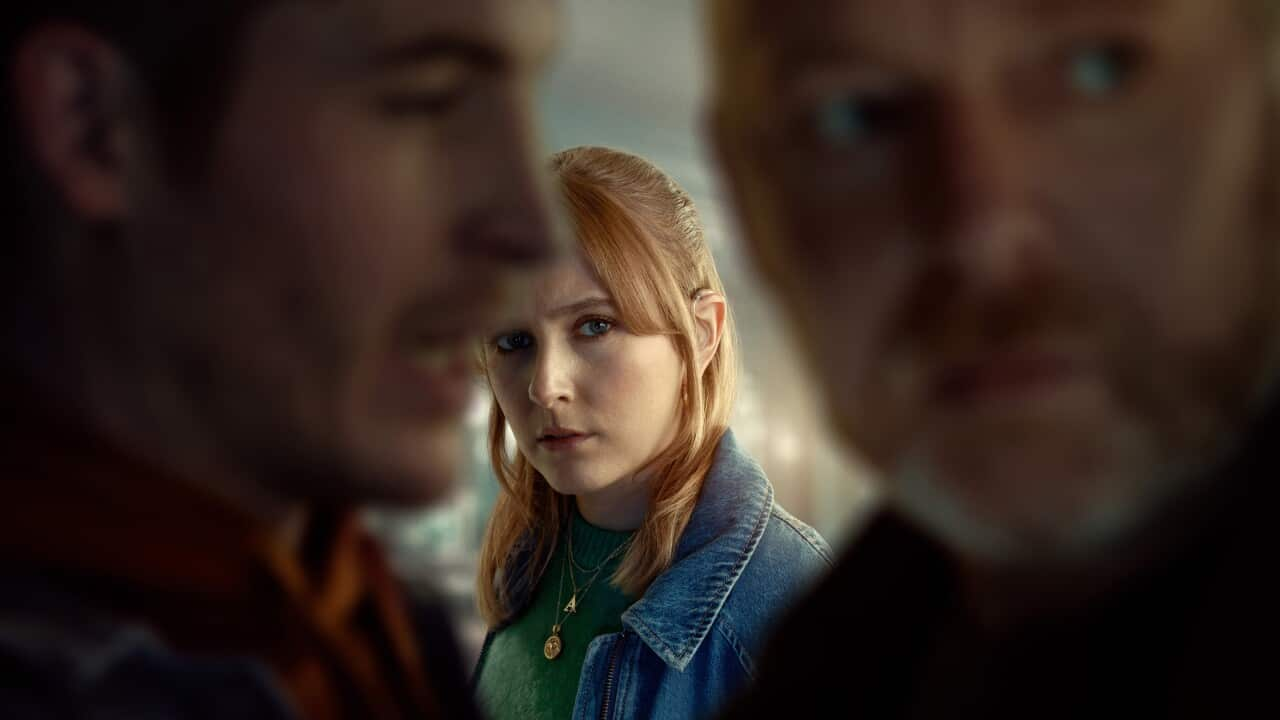“Everyone thinks you can lip read from a distance and see everything someone says, but it's not always like that. Lip reading is a puzzle, and you really see that in Code of Silence,” says Rose Ayling-Ellis, who has been widely acclaimed for her performance as Alison Brooks, the young Deaf woman whose exceptional lip-reading skills see her recruited to help with covert police surveillance of a dangerous gang.
Playing the lead in a drama was new ground for Ayling-Ellis, who had previously appeared in smaller roles in productions including Dr Who, Reunion and Ludwig. But six-part series Code of Silence breaks new ground too, behind and in front of the camera, with a focus on hiring Deaf, disabled and neurodivergent talent and making the set as inclusive as possible, including involving access supervisor Pauline Stone well before filming began, which is often not the case. For those not familiar with lip-reading, the Deaf experience, or what an access supervisor does, hearing about how Code of Silence did things differently is a fascinating learning experience.
“It's the first production I've worked on where access has been taken very seriously from the start. I've been disabled for many years and have worked on productions claiming to be access-focused, then due to budgets or locations it hasn’t necessarily ended up being the case. Access is right at the forefront of this project, so it’s definitely groundbreaking,” Stone says.
Code of Silence sees Brooks, who has worked in a police canteen for years, recruited to observe a gang after her lip-reading skills catch the eye of DS Ashleigh Francis (Ghosts and Call The Midwife star Charlotte Ritchie) and DI James Marsh (Broadchurch’s Andrew Buchan). That’s risky enough, but she soon finds herself facing difficult choices as she is drawn to the gang’s newest recruit, hacker Liam Barlow (Kieron Moore, Vampire Academy).
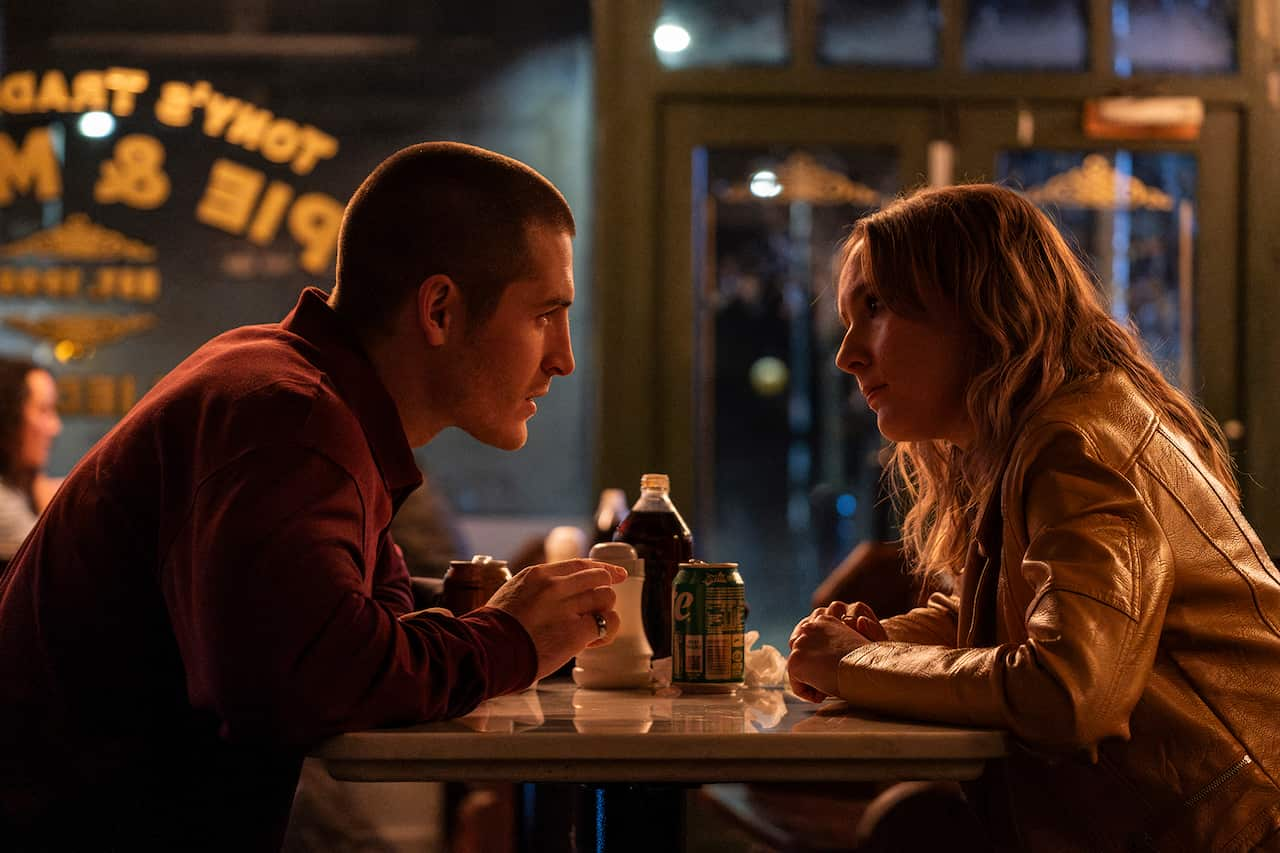
The series is the creation of writer and executive producer Catherine Moulton (The Stolen Girl, Hijack), who was inspired by her own experiences with hearing loss and lip-reading.
“I taught myself to lip read as a child. It was a way to conquer the uncomfortable feeling that I was usually two steps behind in the classroom and the playground. I never quite knew what was going on, particularly in groups of people or in noisy places. Focusing closely on lips made me feel more secure.
I realised that lip readers are detectives, unlocking a silent code.
“Years later, I signed up for lip reading lessons and it was only then that I fully understood the work that lip readers do. It’s estimated that only 30-40 per cent of speech sounds can be lip read even in ideal situations. The rest comes from context. Lip reading is complicated guesswork, piecing together of clues in real time. The visible shapes on the lips, the rhythm of speech, body language, what you know about the person speaking and the situation. I realised that lip readers are detectives, unlocking a silent code.
“From there, my story started to take shape. I love crime drama and I wanted to write a twisty, entertaining thriller with an emotional heart. A main character who has to watch closely suggested a surveillance story.
“I couldn’t imagine a more perfect Alison than Rose Ayling-Ellis. Rose was involved at an early stage of development and her input was invaluable. It meant that we were able to weave elements of Rose’s experiences with my own.”
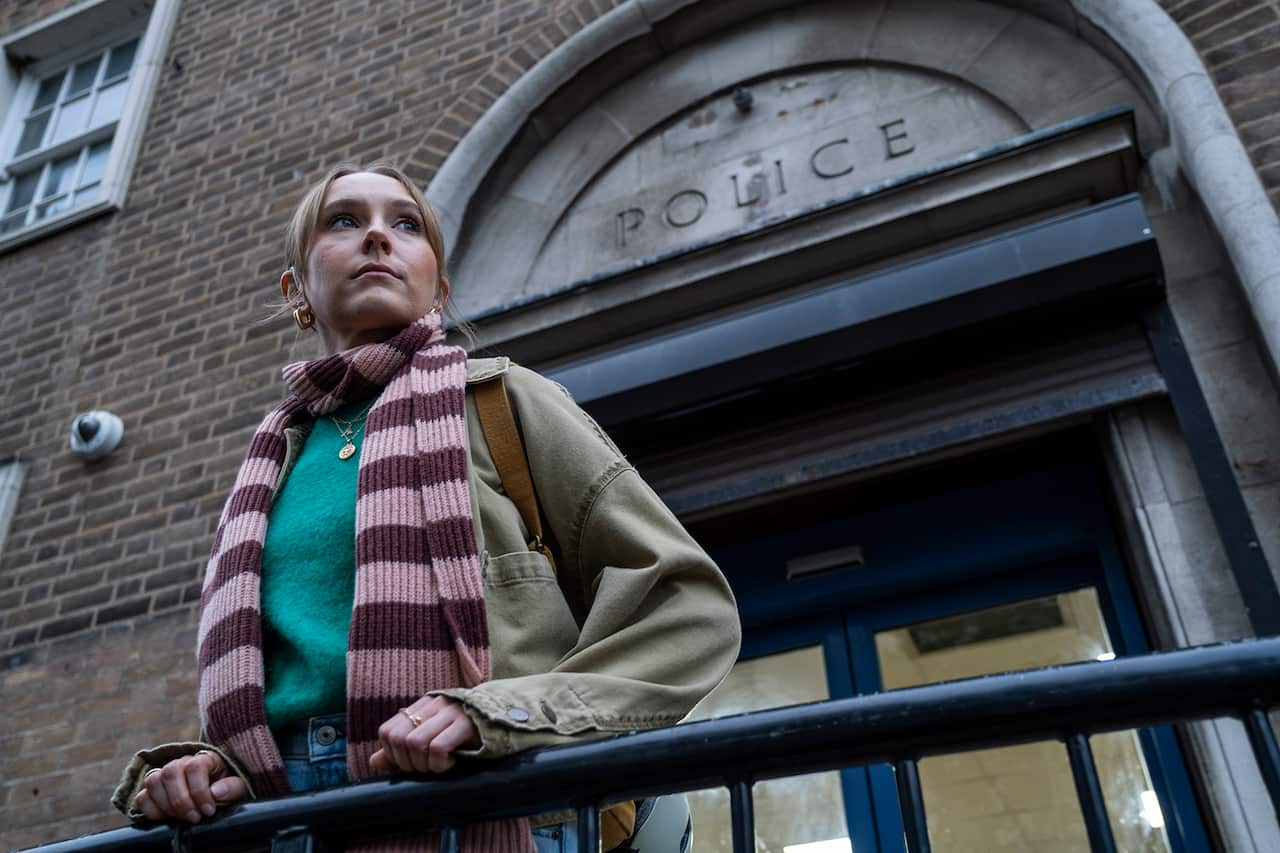
Ayling-Ellis says she was excited by the opportunity to create a more truthful experience of a Deaf person lip reading. “You want to be authentic to the experience of Deaf people, but it's an entertaining drama as well so you need a mix of the two. Code of Silence has a Deaf character at the center, and you can't just ignore that, but she's got other stuff going on too…. [when] Catherine Moulton decided to learn how to lip read, she realised it was more difficult than she had thought. That's what got me most excited: somebody else experiencing it, not just me coming in and telling people what it's like to be Deaf.
“A lot of people don't realise that lip reading is basically 80 per cent guessing. Because I've been doing it all my life, it comes as second nature to me, I do it automatically. Lots of people also don't realise that they can lipread, they just do it subconsciously. It's hard work and we do show that in the drama, although we also push certain aspects a bit for the storytelling.”
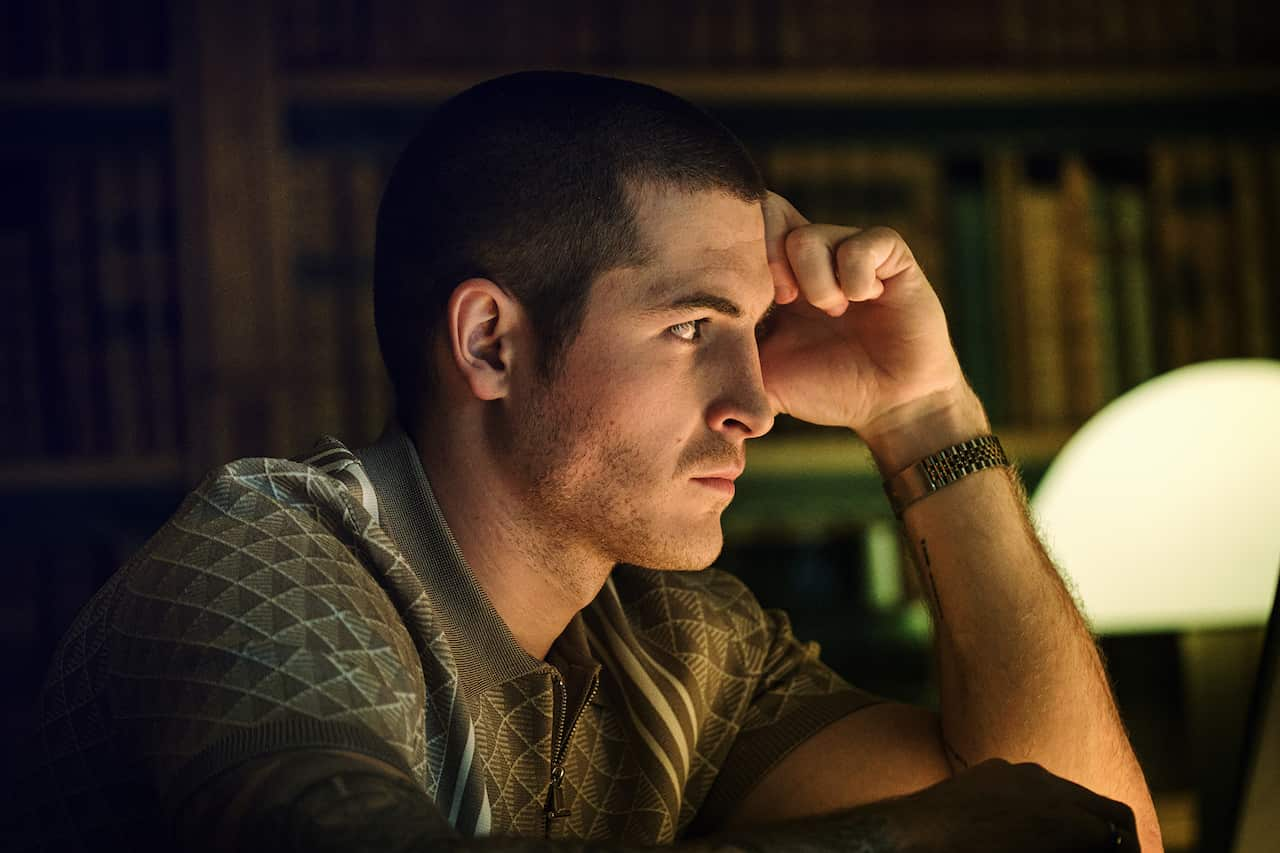
Kieron Moore says he learned a lot from working on the production.
“I was immediately captivated by the script as a fresh idea – they’re hard to come by, but it felt different and real and had some depth to it. As soon as I read it, it felt like being part of something special, not just on screen, but in terms of what it represents off screen.
“It's a reflection of real life. It came with a little bit of a frustration, because I was upset by my own ignorance, but the team was so magnetic and everyone came together. I would never doubt anyone's ability, but it made you realise that something which one person might see as a limitation could be a superpower as well. Everyone brought something only they could bring. Having the team we had with regards to BSL [British Sign Language] instructors, along with Deaf floor runners and other members of the production, really informed what we were doing.”
Co-star Andrew Buchan also found it eye-opening.
“I’d say that we as a cast and crew started learning new things from the first minute. From BSL to lip-reading. It was a whole world we were stepping into that most of us knew nothing about. For me, the whole experience was eye-opening, inspiring and one of the most wonderful jobs I've ever done.”
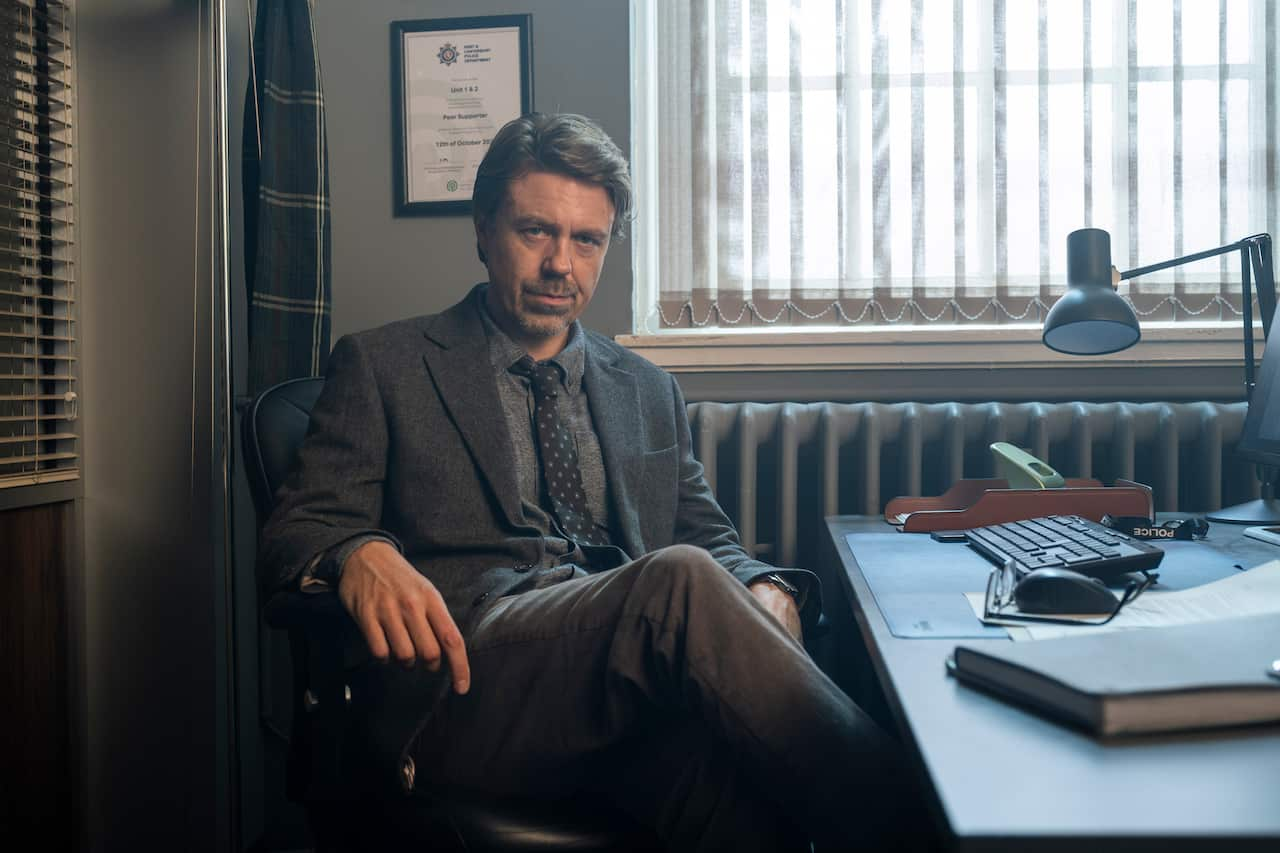
Accessibility supervisor Pauline Stone explains that her role covered a wide range of requirements.
“The role covers a myriad of things, but primarily I am there to oversee access for all cast and crew. Ensuring that anyone who has access requirements has someone to speak to and advocate for them within the production, so that they are able do their best work. Adjustments can range from physical requirements such as ramps and chairs through to travel, accommodation and working hours. I also work with people who have recently had surgery, who have caring responsibilities or are experiencing menopause. I work with production and other departments to ensure that any necessary adjustments are in place for both on screen and off-screen talent, and to offer advice and answer questions. Over the past three or four years, I’ve seen more people becoming aware of the role and how we can help them.
“Production knew that they would have cast and crew with access requirements, so I was brought onto the project during pre-production. This meant that by the time the shoot started I had spoken to all of the crew about their access requirements. During the shoot I was either at the unit base or on set every day to check in with cast and crew and to ensure that access was in place, and to make any adjustments to individual access requirements. I've worked on other productions where I've come onboard later, either due to a storyline change or a confirmed casting and from my experience being part of a project from the very early stages benefits both the production and the individuals I am supporting.”
...our ethos was to be an inclusive set, somewhere people feel welcomed and included
Executive producer Byrony Arnold, herself a wheelchair user, says Stone’s early involvement was part of a wider aim to make this production different.
“We had a clear objective, from the very beginning, to hire as many Deaf, disabled, neurodiverse cast and crew as possible. Using the principles of the TV Access Project [an alliance of British broadcasters and streaming services aiming to improve access provision] our ethos was to be an inclusive set, somewhere people feel welcomed and included and where their voices are heard. Everybody who joined that show agreed to that ethos and ran with it, which was wonderful.”
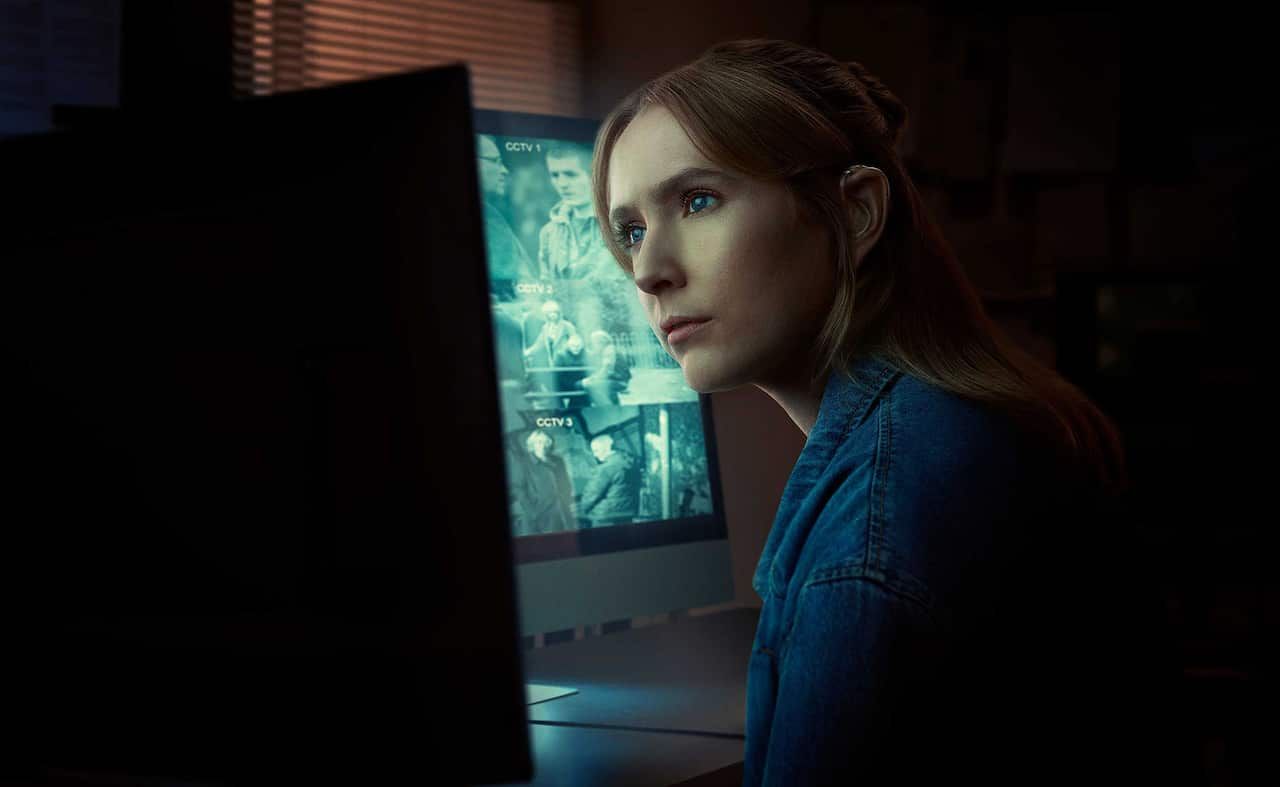
Code of Silence isn’t just a groundbreaking production though – while praised for its “sensitive, innovative approach”, and making Alison’s deafness part of the story but importantly, not just the story, it delivers on the viewing front, too, as reviewers have noted. The UK’s Independent calls it “sexy, funny and edgy” and gives a big thumbs-up to Ayling-Ellis’s performance. Collider dubs it a “stylishly taut and imminently bingeable” watch, with similar enthusiasm for the actress's “quiet skill and effortless authenticity”. Signature, the UK’s leading body for teaching BSL and other communication qualifications, describes the series as “emotionally powerful and intensely gripping”.
Code of Silence is a captivating drama about danger and divided loyalties – and the extra good news is that it’s been so well received in the UK that it’s already been renewed for a second season.
This article includes edited extracts of material supplied by ITV / Mammoth Screen.
All episodes of Code of Silence are streaming at SBS On Demand. Episodes are also airing weekly on SBS, 9.30pm Wednesdays from 10 September. An Auslan-presented version of Code of Silence is available at SBS On Demand. Find more to explore in the Auslan Collection.
Stream free On Demand

Code of Silence
series • Drama
M
series • Drama
M
You can also see Rose Ayling-Ellis in Signs for Change, a documentary that takes viewers inside her world to explore her experiences, attitudes towards the deaf community, the importance of signing and more.
Stream free On Demand

Signs For Change
